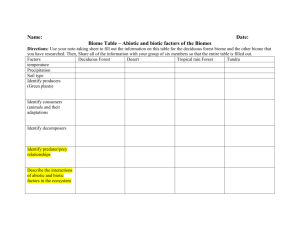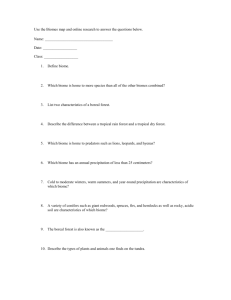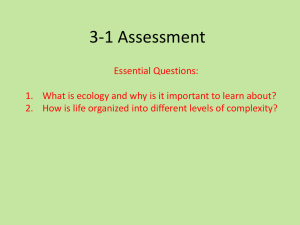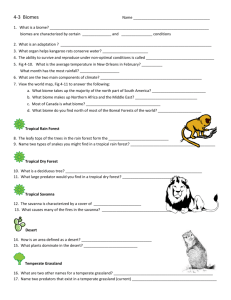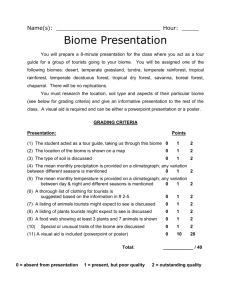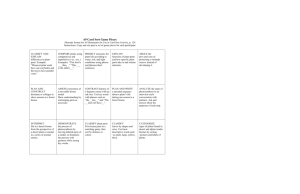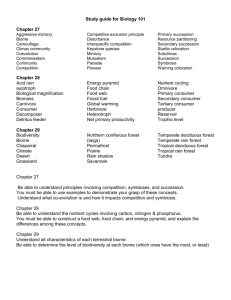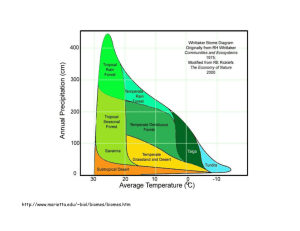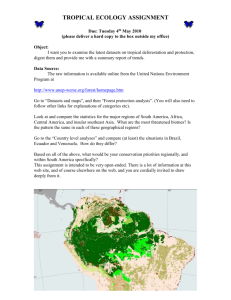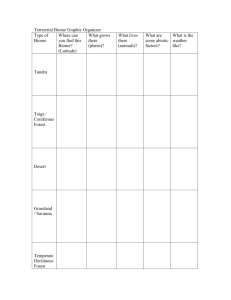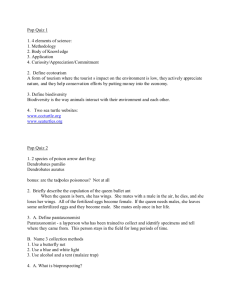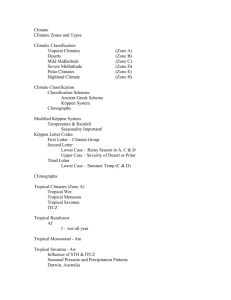Weather and Climate - The University of West Georgia
advertisement
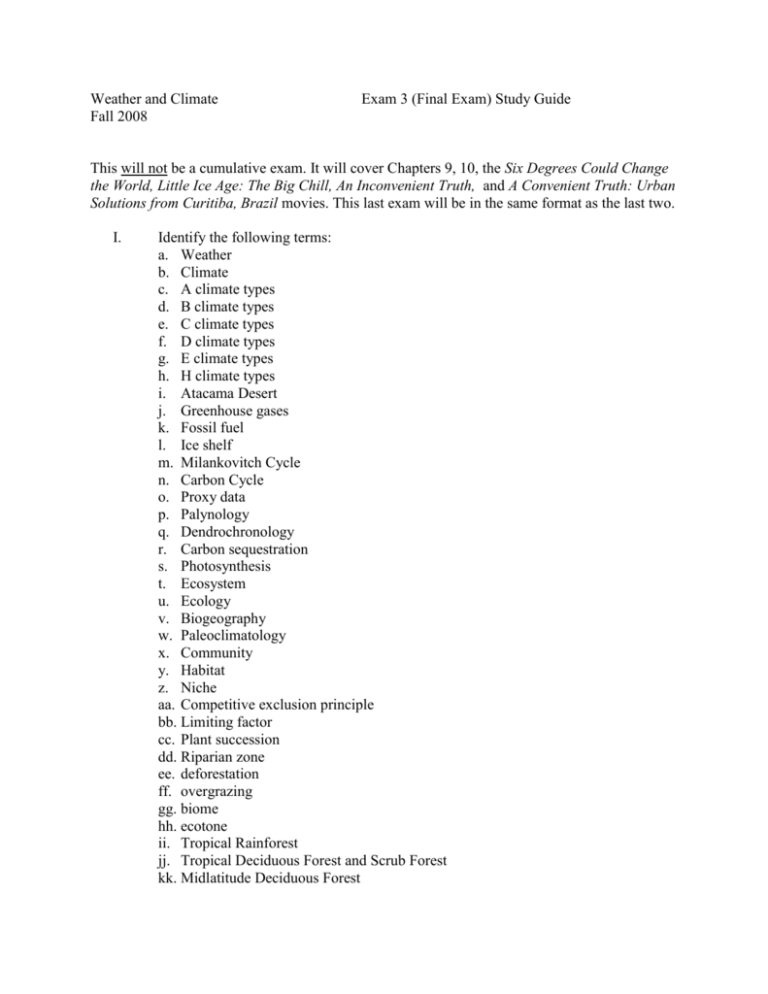
Weather and Climate Fall 2008 Exam 3 (Final Exam) Study Guide This will not be a cumulative exam. It will cover Chapters 9, 10, the Six Degrees Could Change the World, Little Ice Age: The Big Chill, An Inconvenient Truth, and A Convenient Truth: Urban Solutions from Curitiba, Brazil movies. This last exam will be in the same format as the last two. I. Identify the following terms: a. Weather b. Climate c. A climate types d. B climate types e. C climate types f. D climate types g. E climate types h. H climate types i. Atacama Desert j. Greenhouse gases k. Fossil fuel l. Ice shelf m. Milankovitch Cycle n. Carbon Cycle o. Proxy data p. Palynology q. Dendrochronology r. Carbon sequestration s. Photosynthesis t. Ecosystem u. Ecology v. Biogeography w. Paleoclimatology x. Community y. Habitat z. Niche aa. Competitive exclusion principle bb. Limiting factor cc. Plant succession dd. Riparian zone ee. deforestation ff. overgrazing gg. biome hh. ecotone ii. Tropical Rainforest jj. Tropical Deciduous Forest and Scrub Forest kk. Midlatitude Deciduous Forest ll. Mediterranean Woodland and Shrub Forest mm. Chaparral nn. Midlatitude Coniferous Forest oo. Boreal Forest pp. Tropical Savanna Biome qq. Xerophyte rr. Midlatitude Grassland Biome ss. Desert Biome tt. Phreatophytes uu. Ephemerals vv. Succulents ww. Halophytes xx. Desertification yy. Tundra Biome II. Short answer: a. What are the 5 variables that influence climate? b. In the Koppen climate classification system, what do the primary, secondary, and tertiary letters of the system describe? c. What is the climate classification of Carrollton, Georgia? d. Where are the 3 areas you can find B (or arid) climates? e. Why would C climate types have the most weather variability? f. What are the 3 climates you can find in the southeastern US? Exactly where do you find them in the southeast? g. Where do you find D climate types in the Southern Hemisphere? h. What are the 2 reasons why the Atacama Desert in South America is the driest place on Earth. i. Explain why areas near cool or cold ocean currents do not have high rates of convection. What type of pressure is associated with these areas? j. Name and give the locations of the 2 types of tundra. k. What types of vegetation grow in the following climate types: i. ET ii. EF iii. Af iv. Dfc v. Csa vi. Cfa l. What are 3 natural causes of climate change? m. Describe the 3 cycles that make up the Milankovitch Cycle. n. Name 2 sources of carbon dioxide and methane. o. Give one reason why there is no such thing as ‘clean-burning coal-fired power plants’. p. Explain how ice cores can give information on the composition of past atmospheres. q. r. s. t. u. v. How do volcanoes impact weather? What is the relationship between sunspots and Earth’s temperature? Name 2 areas that will be adversely impacted by sea level rise. How will increased precipitation impact Arctic/Antarctic areas? Name and describe 3 types of proxy data. How do changes in pollen found in lake bottoms give information on climate change? w. Name and describe the 2 types of symbiotic relationships x. Name one pro and one con of each of the following energy sources: i. Solar energy ii. Coal energy iii. Nuclear energy iv. Corn-based ethanol v. Wind energy vi. hydropower y. How does carbon sequestration work? Why is it dangerous? z. How do slope, vertical zonation, and aspect impact the types of vegetation found in an area? aa. What are some adaptations that plants in the Mediterranean Shrublands have to repeated fires? bb. Why does southern California burn so often? cc. What are some causes of desertification? dd. What would the primary difference between Cfa and Cwa climates be? III. Illustrations: a. Illustrate the Carbon Cycle. Include the following in your illustration: atmosphere, ocean, biosphere, fossil fuels, illustrate 3 ways (transfers) the carbon is moved from one reservoir to another. Add the question sheets from the Six Degrees Could Change the World, Little Ice Age: The Big Chill, An Inconvenient Truth, and A Convenient Truth: Urban Solutions from Curitiba, Brazil movies
